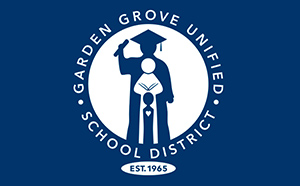News
Garden Grove Unified School District Bolsters Mental Health Resources
- Wednesday, September 12, 2018

Garden Grove Unified School District has expanded its mental health resources to provide greater social emotional support for all students.
New in the 2018-2019 school year, GGUSD expanded its ASPIRE social work program from five schools to fifteen schools. Last year, GGUSD contracted with one social worker and five social work interns to provide site-based mental health services for high need schools. The program experienced such success that GGUSD increased its number of school social workers to three and the number of interns to ten. The GGUSD ASPIRE team will be supporting students' well-being by providing prevention, counseling and case management services to fifteen schools.
“At GGUSD, we are deeply committed to the whole child and we know that our students come to the classroom with a variety of personal issues which can often make it difficult to learn,” said Board of Education Trustee Walter Muneton. “We want all students to know there is a safe place to turn for help at school.”
The social work program is one of many mental health services offered through the district’s Department of Special Education and Student Services. All GGUSD schools have access to at least two to three hours of counseling per week by a credentialed GGUSD school psychologist thanks to an increase in the total number of school psychologists from 23 to 39, which provides a stronger network of mental health care for GGUSD students. In addition, each GGUSD school has at least 10 hours of direct counseling hours that, district-wide, equate to more than 23,000 hours. These hours are provided through strong partnerships that GGUSD has with four contracted community-based organizations.
Over the last several years, GGUSD has placed a targeted focus on creating positive school climates within our schools. While all schools provide a safe and supportive learning environment, 35 schools have implemented Positive Behavioral Interventions and Supports (PBIS). PBIS helps staff and students by using proactive strategies to promote positive school wide behavior.
Additionally, 14 schools implemented programs that directly teach students social-emotional skills. One such program is classroom mindfulness, which teaches students resiliency and self-regulation. Four schools also are using restorative practices through community classroom circles to build positive relationships and increase classroom engagement.
Latest News

GGUSD’s Visual and Performing Arts Program Receives Top Honor for Sixth Year in a Row

Philharmonic Provides Grant to Fund New Instruments for Students with Special Needs

GGUSD Superintendent Recognized with Top Award for Valuing Diversity

GGUSD Cook Selected as Orange County Classified Employee of the Year


